
The Enchanting Jellyfish Lake of Palau
Nestled within the Rock Islands of Palau, Jellyfish Lake is a marine wonder like no other. This secluded saltwater lake is home to millions of golden jellyfish, offering a surreal experience as these gentle creatures float gracefully through the water. The lake's unique ecosystem has evolved over millennia, resulting in jellyfish that have lost their ability to sting, making it a safe and magical place for snorkeling and swimming. The journey to Jellyfish Lake is an adventure in itself, involving a scenic boat ride through the stunning Rock Islands and a short hike through lush, tropical forest. Once you arrive, the sight of the lake's shimmering surface and the golden jellyfish beneath is truly mesmerizing. The experience of swimming alongside these ethereal creatures is both peaceful and exhilarating, providing a deep connection with nature's wonders. In addition to the jellyfish, the lake is surrounded by rich biodiversity, including colorful coral reefs and a variety of marine life. The surrounding Rock Islands offer further exploration opportunities, with hidden beaches, limestone formations, and ancient cultural sites. Jellyfish Lake is not just a destination; it is a journey into a world where nature's beauty and tranquility reign supreme.
Local tips in Jellyfish Lake
- Visit early in the morning to avoid crowds and enjoy the lake in peace.
- Pack reef-safe sunscreen to protect the delicate marine ecosystem.
- Bring a waterproof camera to capture the stunning underwater scenery.
- Wear water shoes for the short hike to the lake to protect your feet.
- Respect the natural habitat by not touching the jellyfish or disturbing the environment.
The Enchanting Jellyfish Lake of Palau
Nestled within the Rock Islands of Palau, Jellyfish Lake is a marine wonder like no other. This secluded saltwater lake is home to millions of golden jellyfish, offering a surreal experience as these gentle creatures float gracefully through the water. The lake's unique ecosystem has evolved over millennia, resulting in jellyfish that have lost their ability to sting, making it a safe and magical place for snorkeling and swimming. The journey to Jellyfish Lake is an adventure in itself, involving a scenic boat ride through the stunning Rock Islands and a short hike through lush, tropical forest. Once you arrive, the sight of the lake's shimmering surface and the golden jellyfish beneath is truly mesmerizing. The experience of swimming alongside these ethereal creatures is both peaceful and exhilarating, providing a deep connection with nature's wonders. In addition to the jellyfish, the lake is surrounded by rich biodiversity, including colorful coral reefs and a variety of marine life. The surrounding Rock Islands offer further exploration opportunities, with hidden beaches, limestone formations, and ancient cultural sites. Jellyfish Lake is not just a destination; it is a journey into a world where nature's beauty and tranquility reign supreme.
When is the best time to go to Jellyfish Lake?
Unmissable attractions to see
Japan-Palau Friendship Bridge
Explore the breathtaking Japan-Palau Friendship Bridge, a stunning symbol of unity and beauty connecting two remarkable islands.
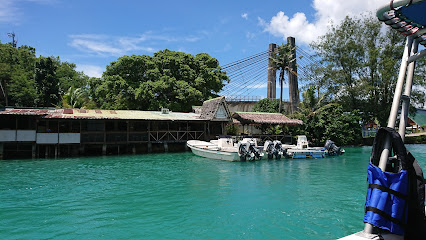
German Channel
Discover the enchanting beauty of the German Channel in Palau, a paradise for snorkeling, diving, and serene relaxation amidst nature's wonders.
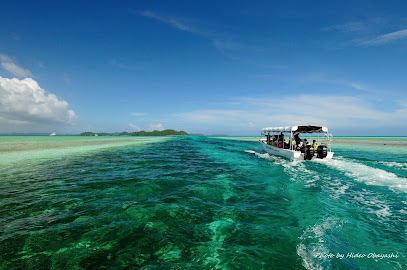
Ngermeaus Island Park
Explore the serene beauty and rich biodiversity of Ngermeaus Island Park, a tropical paradise in Palau perfect for nature lovers and adventurers alike.
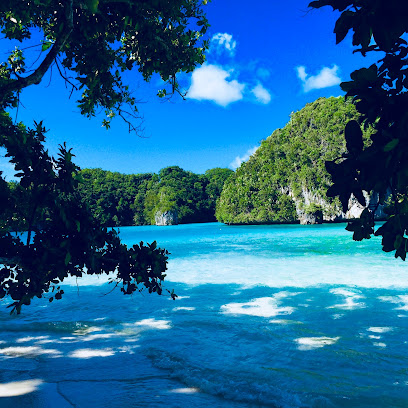
Peleliu Peace Memorial Park
Explore the profound history and natural beauty of Peleliu Peace Memorial Park, a serene tribute to World War II valor in Palau.
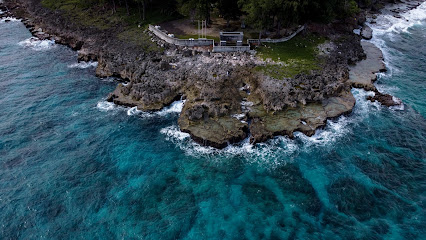
롱 비치
Discover the breathtaking landscapes and vibrant marine life of Palau, a tropical paradise perfect for adventure seekers and nature enthusiasts.
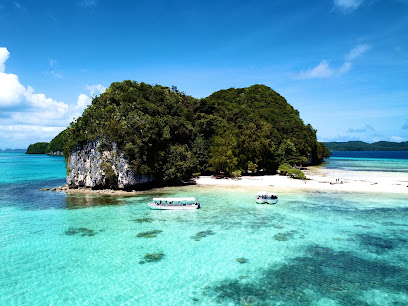
Blue Holes
Explore the breathtaking Blue Holes of Klouklubed, Palau, where crystal-clear waters meet vibrant marine life in a stunning natural setting.
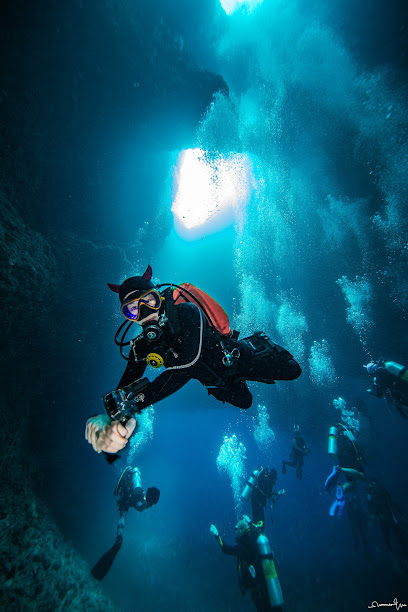
Big dropoff
Experience the breathtaking beauty of Big Dropoff, a premier diving destination in Peleliu, Palau, teeming with vibrant marine life and stunning coral reefs.
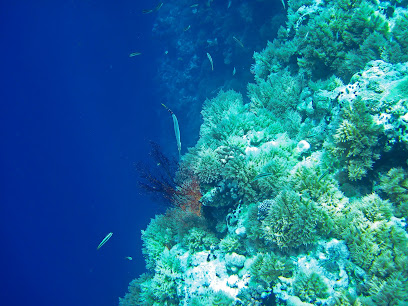
Ice Box Park
Explore the enchanting Ice Box Park in Koror, Palau, where lush landscapes meet local culture for a tranquil escape.
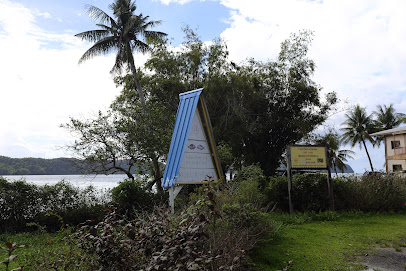
Turtle Cove
Explore Turtle Cove in Peleliu, Palau - a stunning tourist attraction with crystal-clear waters, vibrant marine life, and picturesque landscapes for an unforgettable getaway.
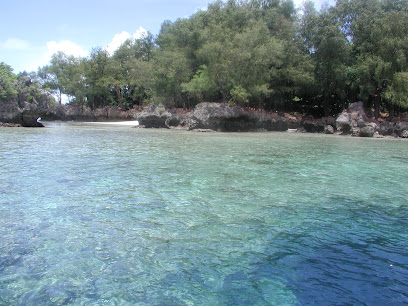
Kuabes Park
Experience tranquility and natural beauty at Kuabes Park, a serene paradise in Ngaraard, Palau, perfect for picnics and leisurely strolls.
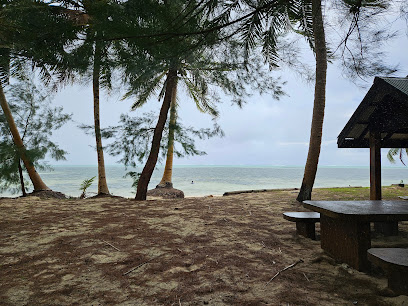
Nice view
Discover the serene beauty of Elab, Ngaraard, where breathtaking views and tranquil landscapes await your exploration.
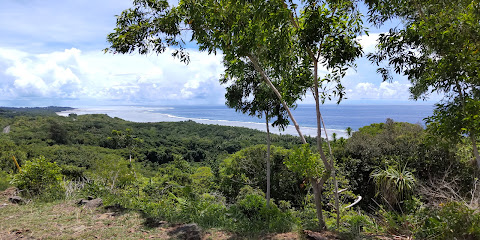
Ngerchelchuus
Explore the breathtaking hiking trails of Ngerchelchuus in Palau, where nature's tranquility meets stunning landscapes.
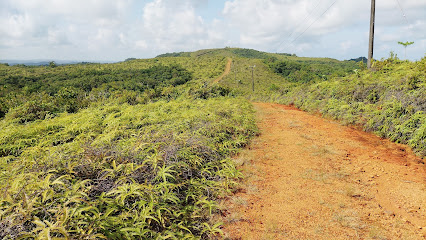
Ngermeskang Bird Sanctuary
Explore the serene Ngermeskang Bird Sanctuary, a hidden gem in Palau, perfect for birdwatchers and nature lovers seeking tranquility and beauty.
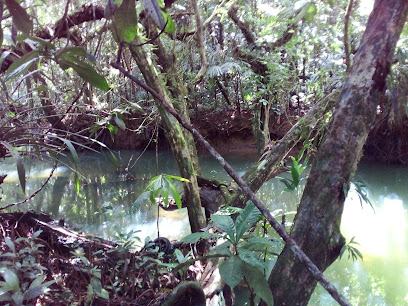
Ngermelt Swimming Hole
Discover the tranquil beauty of Ngermelt Swimming Hole in Peleliu, Palau, an idyllic spot for swimming and relaxation surrounded by lush nature.
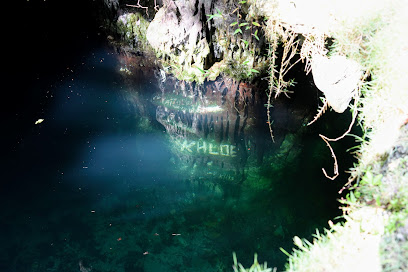
イノキアイランド
Discover the natural wonders of Ion Kairland in Palau, a stunning tourist attraction perfect for adventure, relaxation, and cultural experiences.
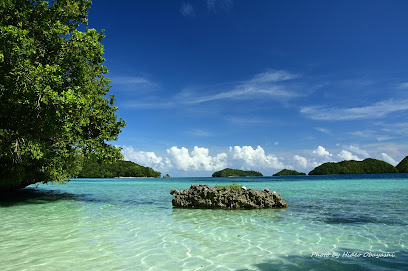
Essential places to dine
Elilai Seaside Dining
Experience exquisite fine dining at Elilai Seaside Dining in Koror, where culinary artistry meets breathtaking ocean views.
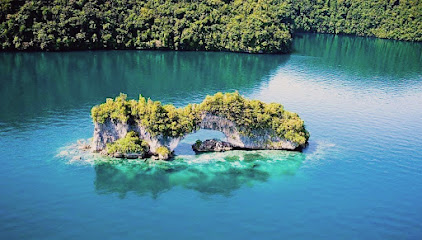
Hungry Marlin Restaurant & Bar at COVE Resort Palau
Experience the best of Palauan cuisine at Hungry Marlin Restaurant & Bar - where every meal is a culinary adventure.
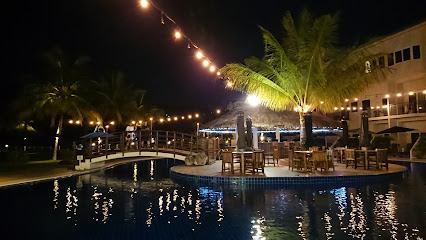
Markets, malls and hidden boutiques
Surangel and Sons Co. - Koror
Discover Surangel and Sons Co. in Koror, Palau—where shopping meets vibrant local culture and unique treasures await every visitor.
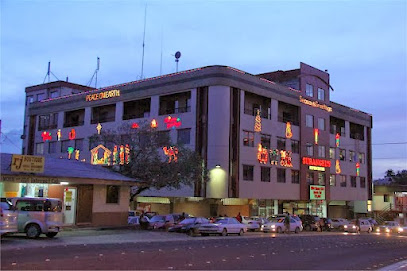
Jellyfish lake in korror
Immerse yourself in the serene beauty of Jellyfish Lake in Koror, a unique swimming lake where you can safely swim with non-stinging jellyfish.
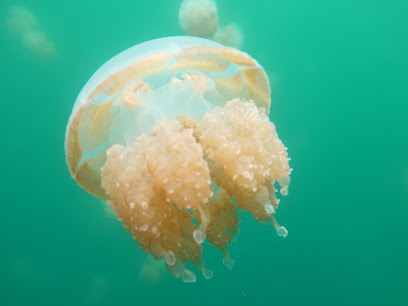
Rur Gift Shop & Cafe
Discover unique souvenirs and local flavors at Rur Gift Shop & Cafe in the heart of Koror, Palau.
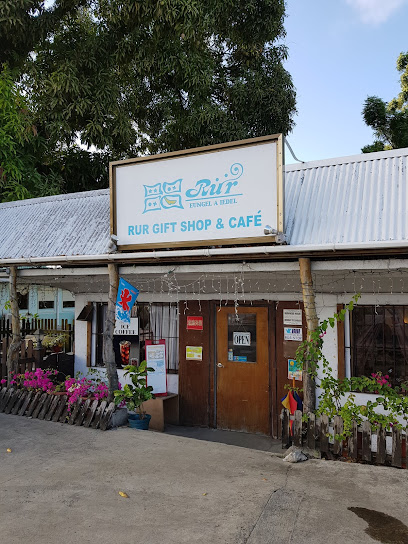
Ben Franklin Department Store
Explore Ben Franklin Department Store in Koror for a unique shopping experience featuring local crafts, clothing, and everyday essentials.
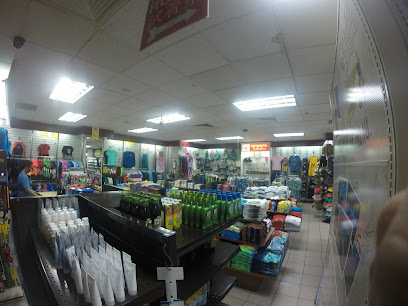
EXILE
Discover exquisite local and international fashion at EXILE, Koror's premier clothing store, blending style with Palauan culture.
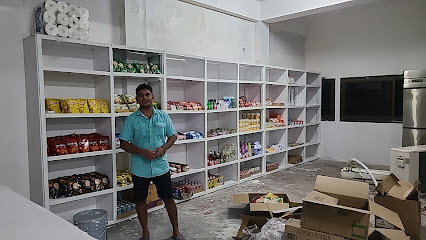
Globus Palau
Explore Globus Palau – a unique home goods store in Koror, offering authentic Palauan crafts and contemporary decor that captures the island's spirit.
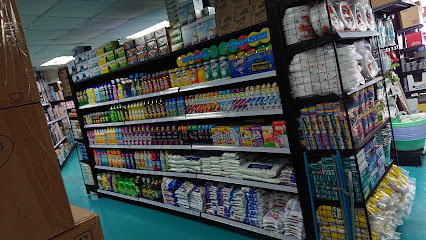
Lius Gift Shop
Explore Lius Gift Shop in Koror for unique souvenirs, delicious cookies, and local fashion accessories that capture the essence of Palau.
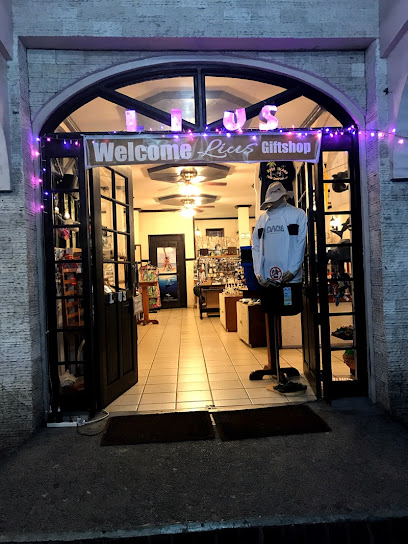
Palau Central Trading Co.
Explore the vibrant Palau Central Trading Co. for unique gifts, local art, and gourmet treats in the heart of Koror.
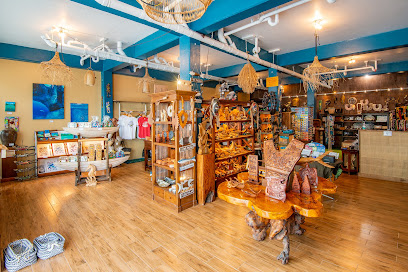
WEST DESEKEL MART
Explore the essentials of daily life at West Desekel Mart in Koror, your trusted grocery store for local and international products.
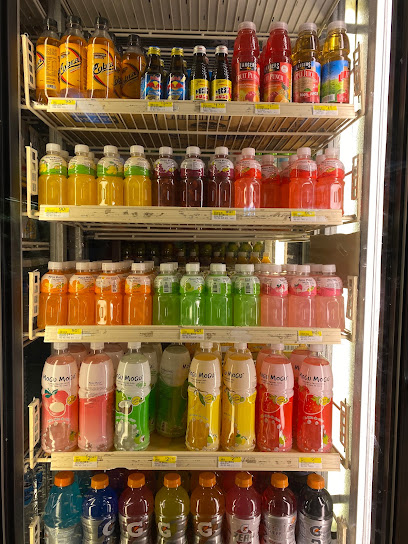
Jello's Fashion II
Explore Jello's Fashion II in Koror for a unique shopping experience with local foods, drinks, and clothing options at unbeatable prices.

Capital Seaside Store
Discover unique local crafts and seaside essentials at the Capital Seaside Store in Melekeok, a vibrant shopping gem on the shores of Palau.
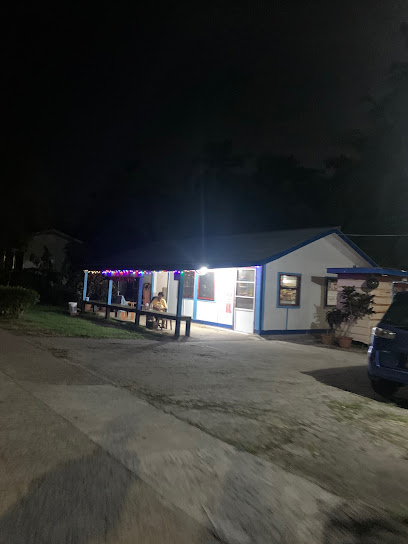
Hanpa Mart
Explore authentic Korean flavors and ingredients at Hanpa Mart in Koror, Palau. A grocery store that brings Korea's culinary delights to your fingertips.
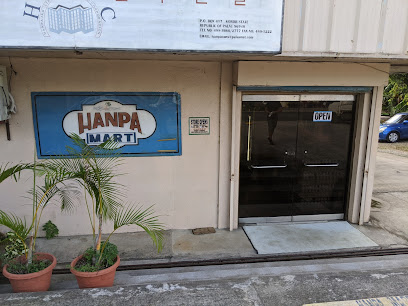
Palau Fish Market
Explore the Palau Fish Market for fresh seafood and local delicacies in the heart of Koror, a must-visit for all tourists!
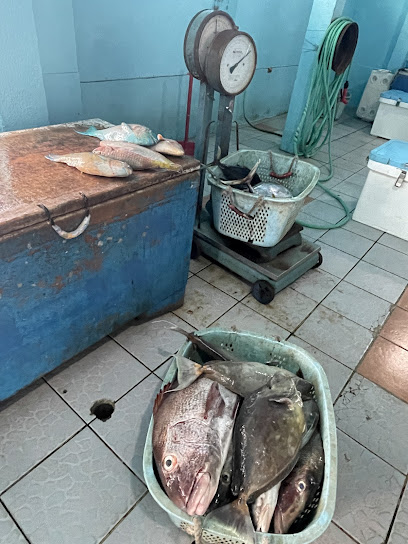
D.A store
Discover the best local and international groceries at D.A Store in Meyungs, Koror, perfect for your Palauan adventure.
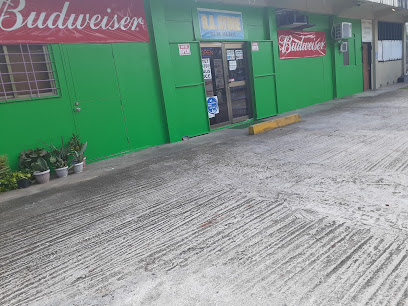
JMC One Stop Shop
Discover unique fashion at JMC One Stop Shop in Koror, where local culture meets modern style in a friendly shopping atmosphere.

Essential bars & hidden hideouts
Drop Off Bar and Grill
Discover a tropical paradise at Drop Off Bar and Grill, where fresh seafood meets breathtaking ocean views in the heart of Palau.
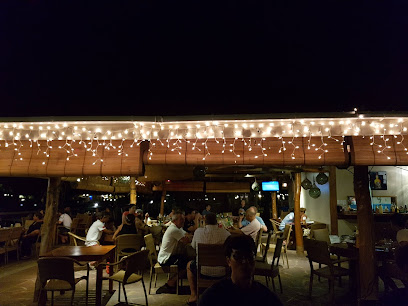
Elilai Seaside Dining
Savor exquisite seafood and stunning ocean views at Elilai Seaside Dining, the ultimate fine dining experience in Palau.
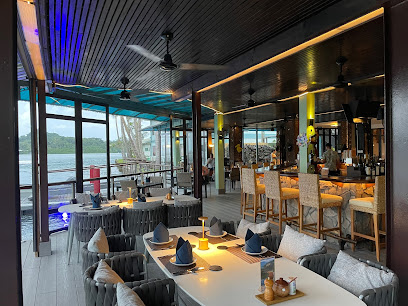
The Canoe House
Experience the flavors and sounds of Palau at The Canoe House, where delicious food meets live music in a vibrant atmosphere.
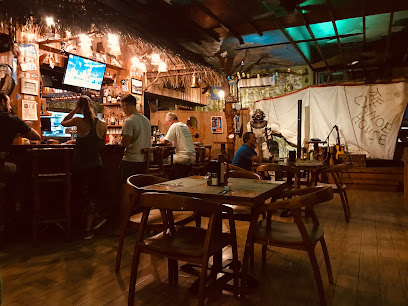
Jellyfish lake in korror
Experience the magic of swimming with non-stinging jellyfish in the breathtaking Jellyfish Lake of Koror, Palau.
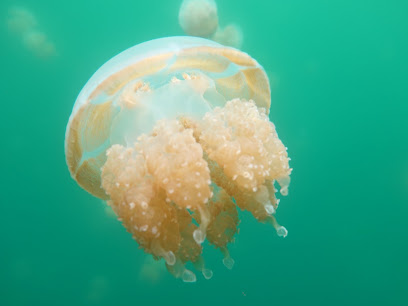
Red Rooster Cafe
Discover Red Rooster Cafe in Koror, Palau: where local flavors meet international cuisine in a charming coastal setting.
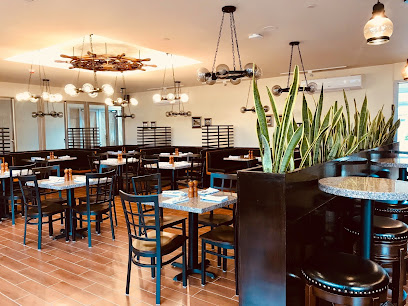
MJ Restaurant
Experience authentic Palauan cuisine at MJ Restaurant in Koror, where local flavors meet warm hospitality in a cozy diner setting.
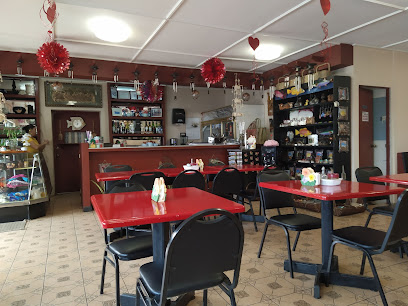
Krämer’s Bar and Restaurant
Experience the flavors of Palau at Krämer’s Bar and Restaurant, where fresh ingredients meet breathtaking views for an unforgettable dining experience.
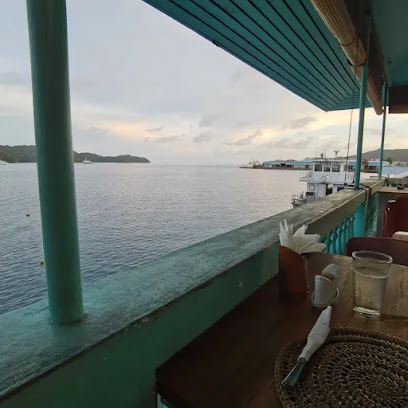
Riptide Beach Bar & Grill
Experience the vibrant flavors of Palau at Riptide Beach Bar & Grill, where ocean views and fresh seafood meet a lively atmosphere.
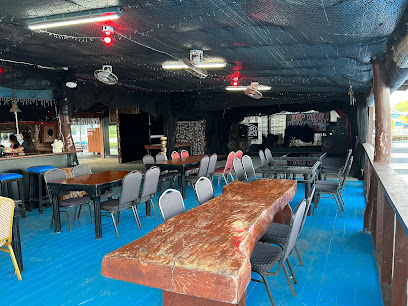
Barracuda Restaurant
Discover Barracuda Restaurant in Koror, Palau, where local flavors meet international cuisine in a stunning waterfront setting.
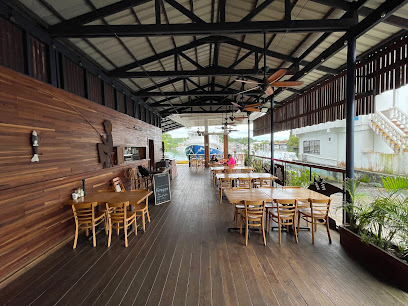
Hungry Marlin Restaurant & Bar at COVE Resort Palau
Discover the exquisite flavors of Hungry Marlin Restaurant & Bar at COVE Resort Palau, where culinary delights meet breathtaking views.
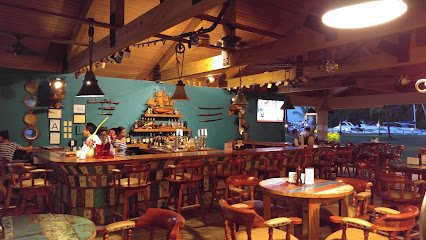
Executive Lounge
Indulge in exquisite dining at Executive Lounge in Koror, where local flavors meet international cuisine for an unforgettable experience.
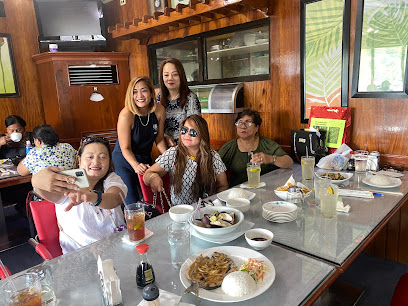
Bottom Time Bar and Grill
Discover the flavors of Palau at Bottom Time Bar and Grill, where local cuisine meets stunning island views in a relaxed atmosphere.
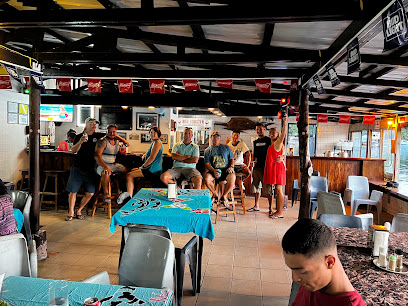
Jungle Bar
Experience the vibrant flavors of Palau at Jungle Bar, a must-visit restaurant in Koror offering delightful cuisine and a lively atmosphere.
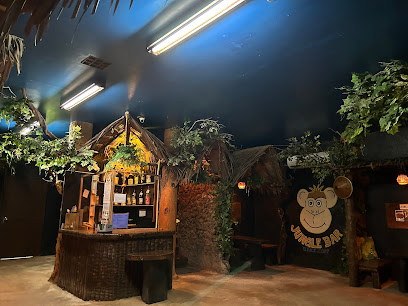
Weltz Bar at the Palasia Hotel
Experience the vibrant ambiance and refreshing cocktails at Weltz Bar in the Palasia Hotel, a must-visit tropical oasis in Koror, Palau.
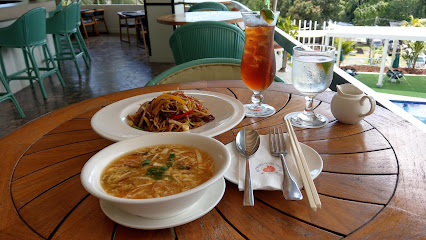
Local Phrases about Jellyfish Lake
-
- HelloAlii
[ah-lee] - GoodbyeKlaude
[klow-deh] - YesOngal
[ong-gal] - NoMeleches
[meh-leh-ches] - Please/You're welcomeCheldecheduch
[chel-deh-cheh-dooch] - Thank youKe kmal mesaul
[keh k-mahl meh-sow-ool] - Excuse me/SorryKlaud
[klowd] - How are you?Kemam a kmal?
[keh-mahm ah k-mahl] - Fine. And you?Chad er a kmal. A ngklek?
[chahd er ah k-mahl. ah ng-lek] - Do you speak English?Kemam a kmal ousbech er a Belau?
[keh-mahm ah k-mahl ows-behch er ah beh-lao] - I don't understandA chaung
[ah chow-ng]
- HelloAlii
-
- I'd like to see the menu, pleaseNg diak el mengilt a rechad er a tekoi, cheldecheduch
[ng dee-ak el meng-illt ah reh-chad er ah teh-koy, chel-deh-cheh-dooch] - I don't eat meatA diak lekau a telkib el chad
[ah dee-ak leh-kow ah teh-lkeeb el chahd] - Cheers!Kmochel
[k-moh-chel] - I would like to pay, pleaseNg diak el melim a rechad er a tekoi, cheldecheduch
[ng dee-ak el meh-leem ah reh-chad er ah teh-koy, chel-deh-cheh-dooch]
- I'd like to see the menu, pleaseNg diak el mengilt a rechad er a tekoi, cheldecheduch
-
- Help!Kmal mla mo kau
[kmahl m-lah moh kow] - Go away!Kmal melekoi
[kmahl meh-leh-koy] - Call the Police!Kmal mo chellab a beluu
[kmahl moh chel-lahb ah beh-loo] - Call a doctor!Kmal mo ungil a berrus
[kmahl moh oong-gil ah beh-roos] - I'm lostA diak lekau a chad
[ah dee-ak leh-kow ah chahd] - I'm illA diak el bebil
[ah dee-ak el beh-beel]
- Help!Kmal mla mo kau
-
- I'd like to buy...Ng diak el kau a...
[ng dee-ak el kow ah...] - I'm just lookingNg diak el ngarngii a rechad
[ng dee-ak el ngar-ng-ee ah reh-chad] - How much is it?Kmochel a bung
[k-moh-chel ah boong] - That's too expensiveTe kmo ng meringel
[teh k-moh ng meh-ring-ehl] - Can you lower the price?Meng diak el menguiu a bung?
[meh-ng dee-ak el meng-wee-oo ah boong]
- I'd like to buy...Ng diak el kau a...
-
- What time is it?Kmochel a bung
[k-moh-chel ah boong] - It's one o'clockKmal meral di teloi
[kmahl meh-rahl dee teh-loh-ee] - Half past (10)Sesenglel a teloi (10)
[seh-seng-lehl ah teh-loh-ee (10)] - MorningA rengalek
[ah reh-ngah-lek] - AfternoonA rekungalek
[ah reh-koo-ngah-lek] - EveningA rrat a klisichel
[ah r-raht ah klee-see-chel] - YesterdayA rael a kall
[ah rahl ah kahl] - TodayA rengalek
[ah reh-ngah-lek] - TomorrowA rrat a klisichel
[ah r-raht ah klee-see-chel] - 1Remech
[reh-mehch] - 2Dirkair
[deer-kai-er] - 3Telu
[teh-loo] - 4Rau
[row] - 5Ngimel
[ngi-mel] - 6Kuoi
[kwoy] - 7Teluau
[teh-loo-ow] - 8Deluach
[deh-lwach] - 9Kdengar
[kdeh-ngar] - 10Udoud
[oo-dowd]
- What time is it?Kmochel a bung
-
- Where's a/the...?Meng di chudel a...
[meh-ng dee chuh-del ah...] - What's the address?Kmochel a chesuchel?
[k-moh-chel ah che-soo-chel] - Can you show me (on the map)?Meng diak el menguiu a rechad er a tekoi?
[meh-ng dee-ak el meng-wee-oo ah reh-chad er ah teh-koy] - When's the next (bus)?Kmochel a belau a ngarngii?
[k-moh-chel ah beh-lau ah ngar-ng-ee] - A ticket (to ....)Ng di chudel a tiket (er a...)
[ng dee chuh-del ah tee-ket (er ah...)]
- Where's a/the...?Meng di chudel a...
History of Jellyfish Lake
-
Jellyfish Lake, known locally as Ongeim'l Tketau, is a marine lake situated on Eil Malk island in Palau. The lake was formed approximately 12,000 years ago during the Holocene epoch, when rising sea levels filled the basin with seawater. Over millennia, the lake became isolated from the surrounding ocean, creating a unique environment that allowed for the evolution of its distinctive jellyfish population.
-
The first recorded exploration of Jellyfish Lake by Westerners occurred in the early 20th century. During the German colonial period in Palau (1899-1914), scientists began documenting the unique ecological features of the lake. Subsequent expeditions in the 1920s and 1930s conducted by Japanese researchers further contributed to our understanding of the lake's biological and geological significance.
-
During World War II, Palau became a strategic location for both Japanese and Allied forces. Jellyfish Lake and its surrounding areas were largely untouched by direct conflict, but the broader environmental impact of the war led to changes in local ecosystems. The lake's isolation may have protected its delicate environment from the more severe disruptions experienced elsewhere in Palau.
-
In the latter half of the 20th century, Jellyfish Lake gained international attention as a unique natural wonder. The Palauan government, recognizing the lake's ecological and economic importance, established strict conservation measures. Today, Jellyfish Lake is a popular tourist destination, attracting visitors who swim among its non-stinging jellyfish. Conservation efforts continue to ensure the lake's delicate ecosystem remains protected for future generations.
-
In recent years, Jellyfish Lake has faced challenges related to climate change and environmental degradation. Rising temperatures and changing oceanic conditions have led to periodic declines in the jellyfish population. Research and monitoring efforts are ongoing to understand and mitigate these impacts, with the aim of preserving the lake's unique biodiversity.
Jellyfish Lake Essentials
-
Jellyfish Lake is located on Eil Malk Island in Palau. The nearest airport is Roman Tmetuchl International Airport (ROR) in Koror. From there, you can take a taxi to a local marina, and then a boat to Eil Malk Island. Guided tours often include transportation to and from the island, which is a convenient option for most travelers.
-
Koror, the main city, has taxis and rental cars available for transportation. For getting to Jellyfish Lake specifically, boats are the primary mode of transport. Tours often include boat transportation to the lake. Given the small size of the island, walking is a viable option once you arrive.
-
The official currency of Palau is the U.S. Dollar (USD). Credit cards are widely accepted in hotels, restaurants, and larger shops in Koror. However, it is advisable to carry cash for smaller establishments and on excursions to remote areas, such as Jellyfish Lake. ATMs are available in Koror, but not on the smaller islands.
-
Palau is generally a safe destination for tourists, with low crime rates. However, standard precautions should be taken to avoid petty theft. Always keep an eye on your belongings and avoid isolated areas at night. There are no specific high-crime neighborhoods targeting tourists in Palau.
-
In case of emergency, contact local authorities by dialing 911. Medical facilities are available in Koror, and it is advisable to have travel insurance that covers medical emergencies. For minor health issues, there are pharmacies in Koror where you can purchase over-the-counter medications.
-
Fashion: Do wear lightweight, breathable clothing suitable for tropical climates. Don't wear heavy or restrictive clothing. Religion: Do respect local customs and traditions. Don't disrupt religious ceremonies or enter sacred sites without permission. Public Transport: Do be courteous and respectful. Don't litter or cause disruptions. Greetings: Do greet people with a friendly wave or a smile. Don't be overly familiar with strangers. Eating & Drinking: Do try local dishes and accept food graciously. Don't waste food or drink excessively.
-
To experience Jellyfish Lake like a local, consider visiting early in the morning to avoid crowds. Engage with local tour guides, who can provide valuable insights into the lake's history and ecosystem. Bring snorkeling gear, as swimming with the jellyfish is a unique experience. Ensure you follow guidelines to avoid harming the delicate environment.
Nearby Cities to Jellyfish Lake
-
Things To Do in Koror
-
Things To Do in Airai
-
Things To Do in Ngatpang
-
Things To Do in Ngchesar
-
Things To Do in Ngaremlengui
-
Things To Do in Melekeok
-
Things To Do in Ngerulmud
-
Things To Do in Ngardmau
-
Things To Do in Ngaraard
-
Things To Do in Yap
-
Things To Do in Siargao
-
Things To Do in Davao City
-
Things To Do in Cagayan de Oro
-
Things To Do in Camiguin
-
Things To Do in Bohol







